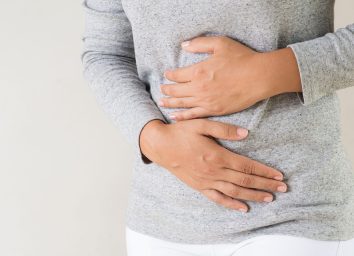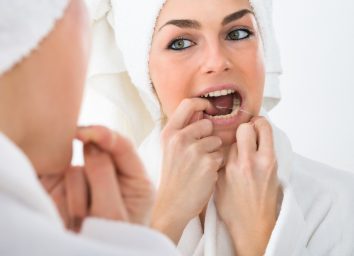15 Foods That Stain Your Teeth
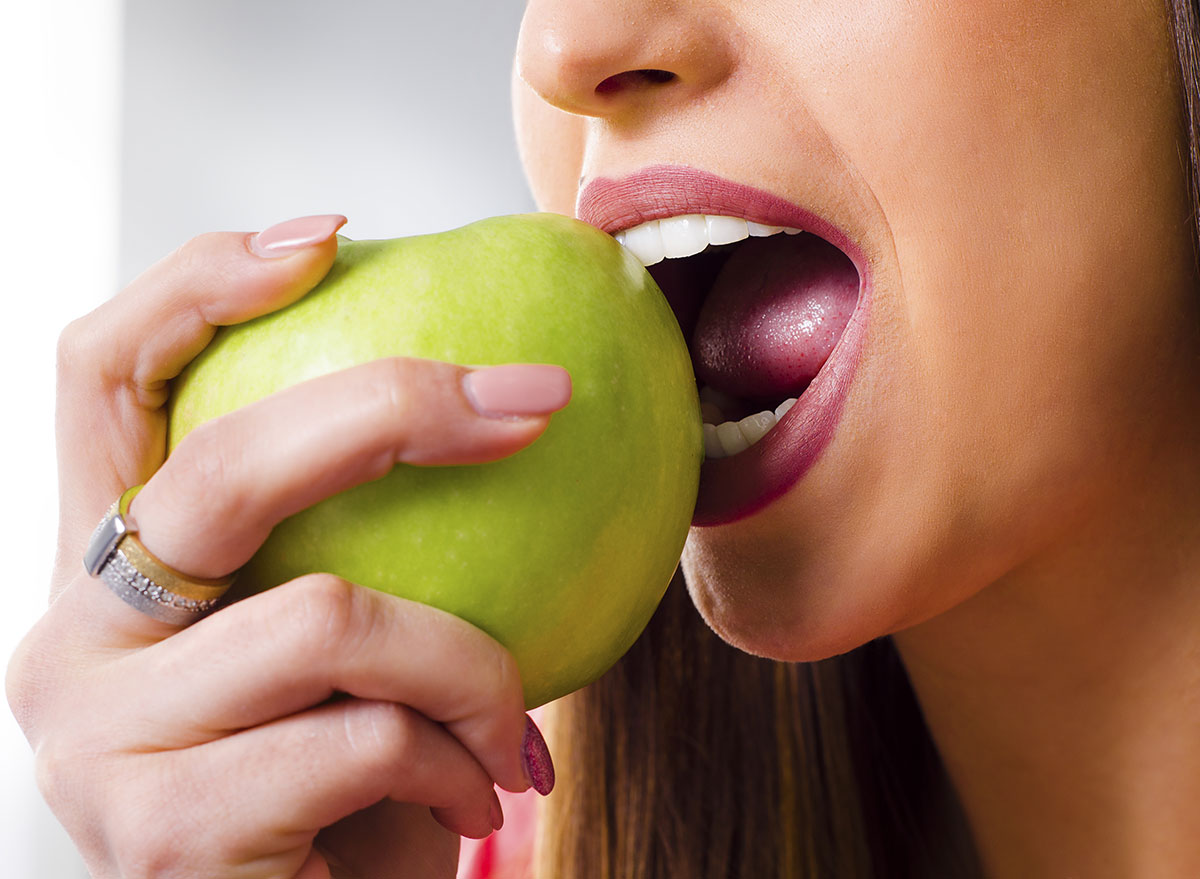
From lifted confidence to better dentist checkups, keeping your pearly whites healthy can have tangible, positive effects on your everyday life. But while expensive treatments and sticky whitening strips can help alter the color of your teeth, keeping your mouth healthy by brushing and flossing daily—in addition to avoiding certain foods—can help prevent that dreaded yellowing in the first place.
If you’re on a quest for a beaming smile and want to avoid taking drastic measures to get there, take note of these stain-causing foods. And while we have beauty efforts in mind, why not check out these 21 Foods That Help Fade Stretch Marks, too?
Berries

We love berries but have some bad news when it comes to your beauty goals. Due to their darker hues, berries may actually cause staining of the teeth when eaten regularly. To fight against the stains, consider brushing right after you enjoy your berries. “Make sure you’re brushing twice a day, flossing daily, and using fluoride. Fluoride strengthens your teeth against those acid attacks caused by eating,” says Dr. Kim Harms, spokesperson for the American Dental Association. This is important after you munch on something like berries or popcorn, in which particles can easily get stuck between your teeth. Because honestly, berries are awesome; they’re one of the 15 Most Antioxidant-Packed Foods!
Coffee
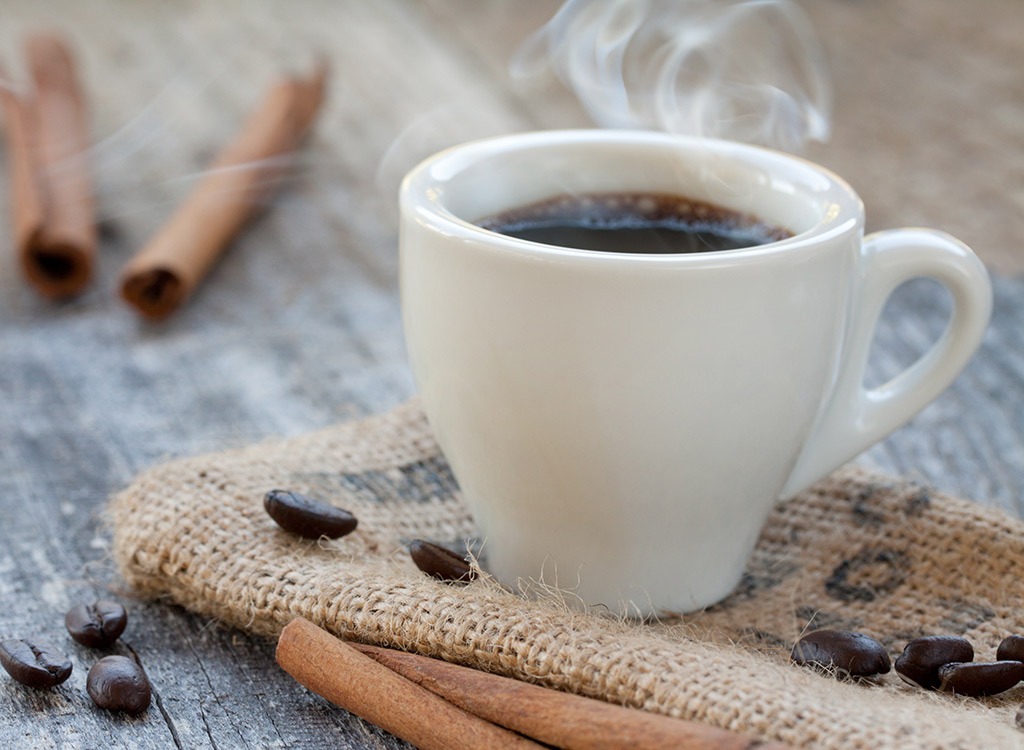
Your morning cup of joe might not be negotiable in your mind, but if your teeth have been looking a bit dull lately, that latte might very well be the reason why. Coffee contains acidic polyphenols called tannins that can lead to staining and discoloration. Plus, coffee is also very acidic to the body and acidic foods can be more harmful to your oral health and lead to tooth decay.
Tea
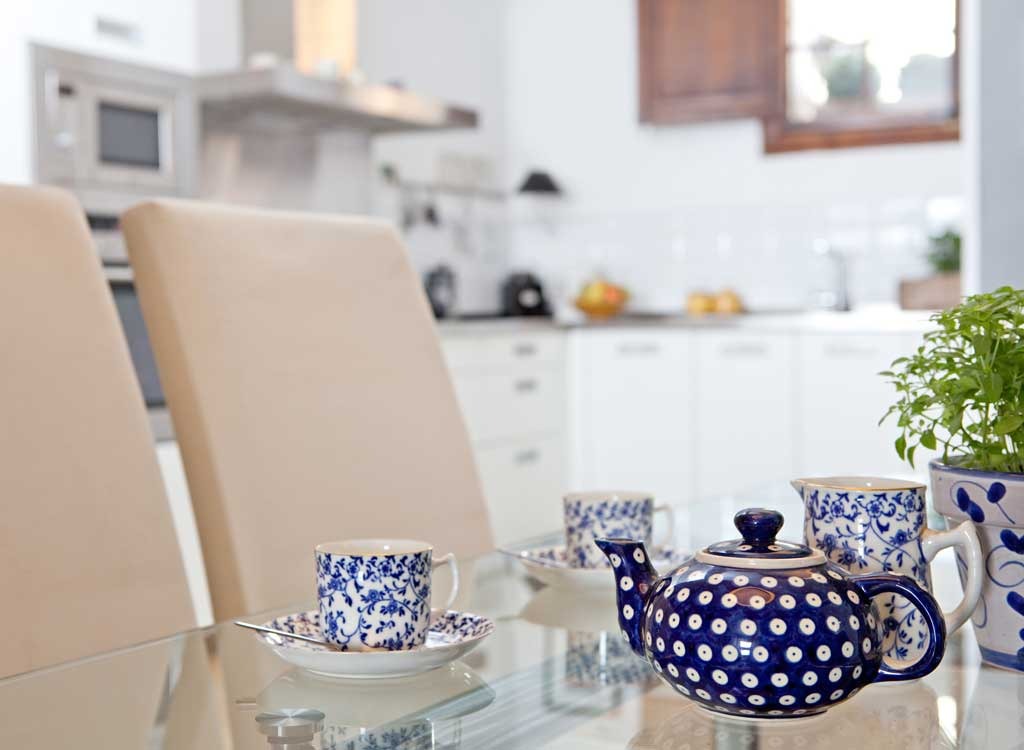
We adore tea at ETNT—so much so that we created The 7-Day Flat-Belly Tea Cleanse with food journalist Kelly Choi. (Test panelists lost about to 10 pounds in a week!) But there’s a caveat to all those tea benefits; tea can have stain-causing tannins. Plus, the frequency of your sipping on that brew matters, too. “One thing that people don’t realize is that, when it comes to cavity formation for your teeth, it’s not just what you’re eating, but how often you’re eating it,” says Harms. If you’re constantly sipping on coffee or tea throughout the day, you’re more prone to discoloration and acid attacks on your teeth. To fight against tea stains, research published in the International Journal of Dental Hygiene says to add a little milk to your cup! The casein in milk was found to significantly prevent and reduce tea-induced stains.
Red Wine

Those same troublesome tannins exist in your favorite glass of vino, too. However, there are ways to enjoy the benefits of wine and alcohol and keep your smile radiant. Pair your glass of Pinot Noir with a handful of almonds to help counteract staining. Experts believe that simply the act of chewing hard foods like nuts can help scrub away plaque from teeth and mitigate staining. Chewing them can also help stimulate saliva which may neutralize those harmful acid attacks.
Curry
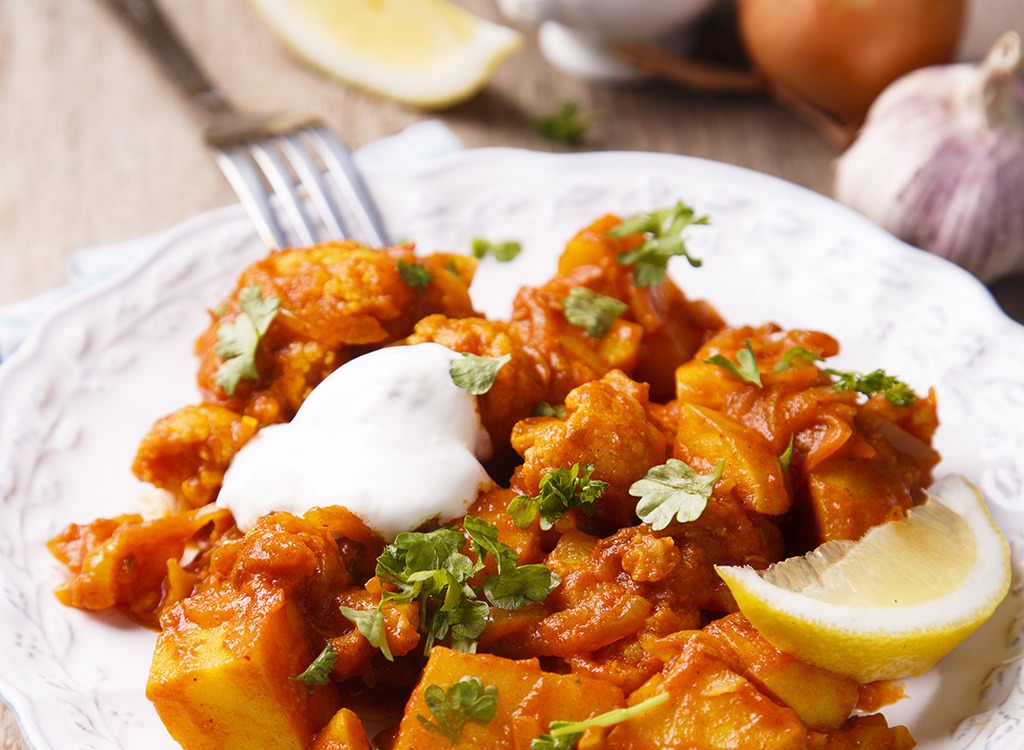
Feeling Indian food tonight? Although the exotic spices may take your tastebuds for a ride, those same flavorings may also tint your teeth, thanks to their deep pigmentation. The best way to prevent staining here is to make curry an “every once in awhile” treat; your still-glowing teeth will thank you.
Hard Candies
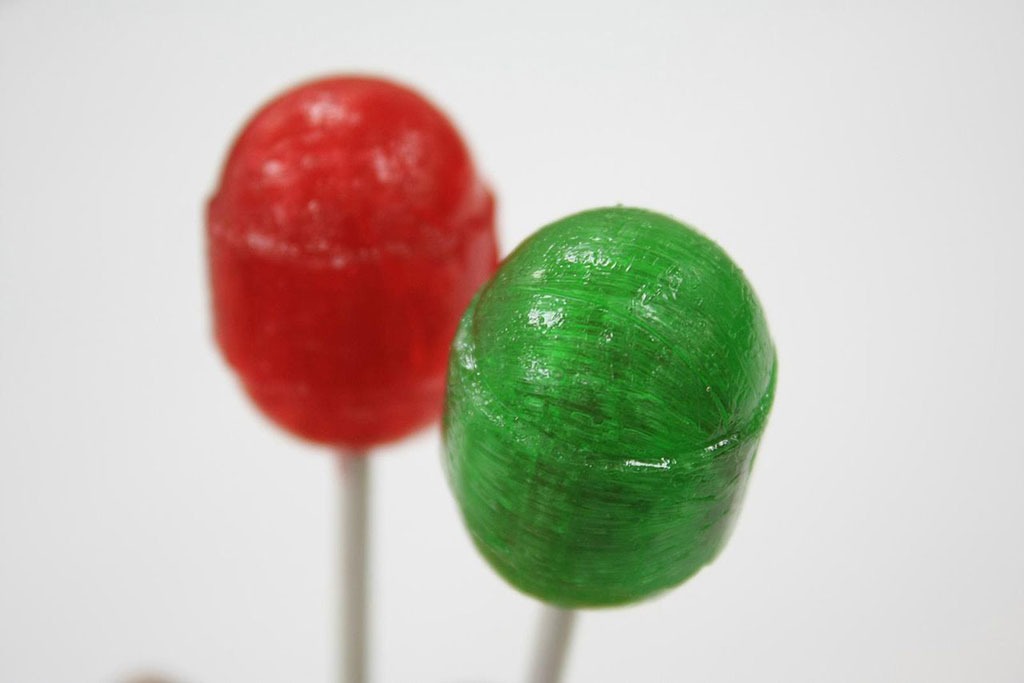
Hard candies like Jolly ranchers might be one of the worst foods for your teeth. Their stickiness can get stuck between your teeth and become a major feeding ground for bacteria, which can release acid that leads to tooth decay. However, there are some expert-approved sweets you can snack on with less concern. “If you’re going to eat candy, it’s better to eat something like dark chocolate that’s not sticky—but preferably varieties with as little sugar as possible,” says Harms.
Tomato Sauce
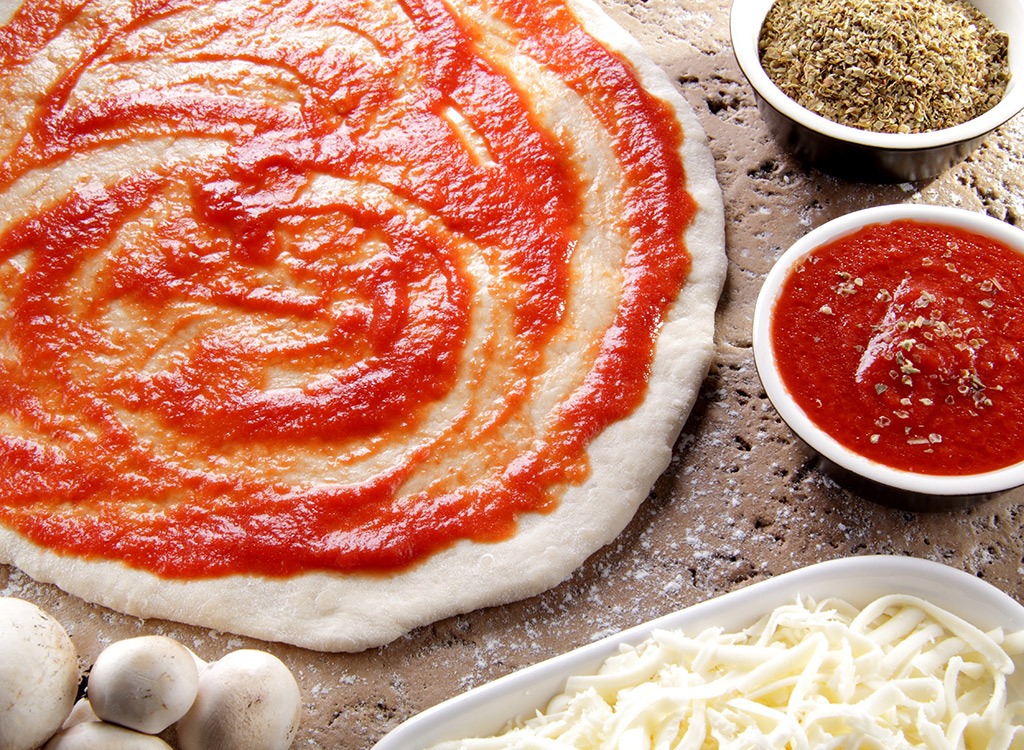
“Anything that can stain your carpet can stain your teeth,” says Harms. Spaghetti and meatballs may have made their way into the regular dinner rotation, but if you’re at all concerned about the color of your teeth, you may want to reconsider. How often you eat something has the greatest effect on your teeth, rather than what you’re actually eating, advises Harms. (Psst! If you love pasta, find out The #1 Best Pasta for Your Body!)
Cherry Juice
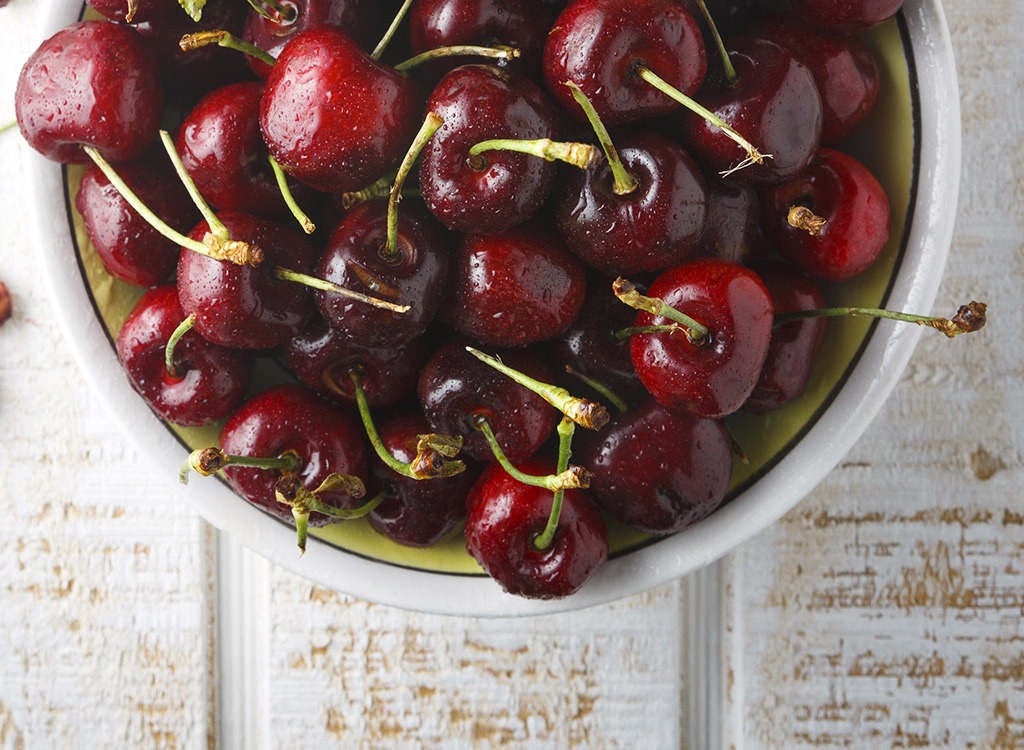
All fruit juice puts your teeth at risk of discoloration, especially when the fruits are richly pigmented like cherries or berries. Not to mention, fruit juice is often stacked high in sugar, which can act as a breeding site for bacteria in your mouth and lead to more dental damage and discoloration.
Soda
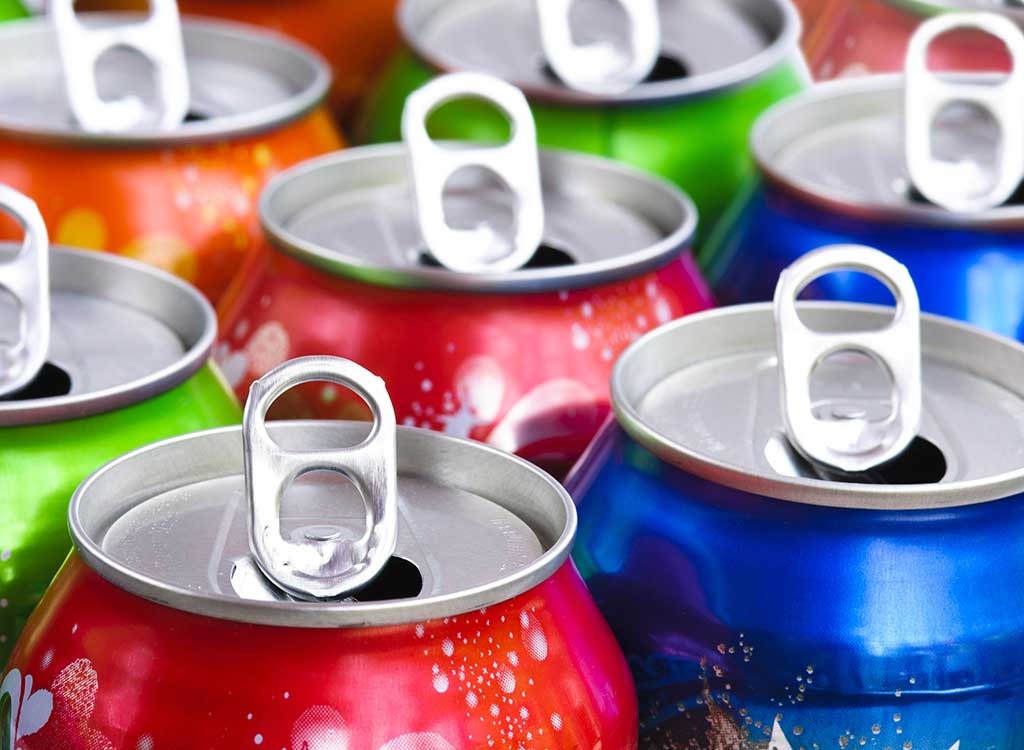
Whether it’s a full-sugar soda or a diet version, it doesn’t matter; this bubbly beverage is considered acidic to the body and, as a result, is damaging to your dental health. “Drinking plain water is the best choice for your teeth. If you’re drinking something acidic and taking sips from it all day and night, that’s not good. Drinking through a straw may help a little, but the liquid eventually gets around your whole mouth,” says Harms. Skip the soda and opt for seltzer if you need to get a fizzy fix.
Balsamic Vinegar
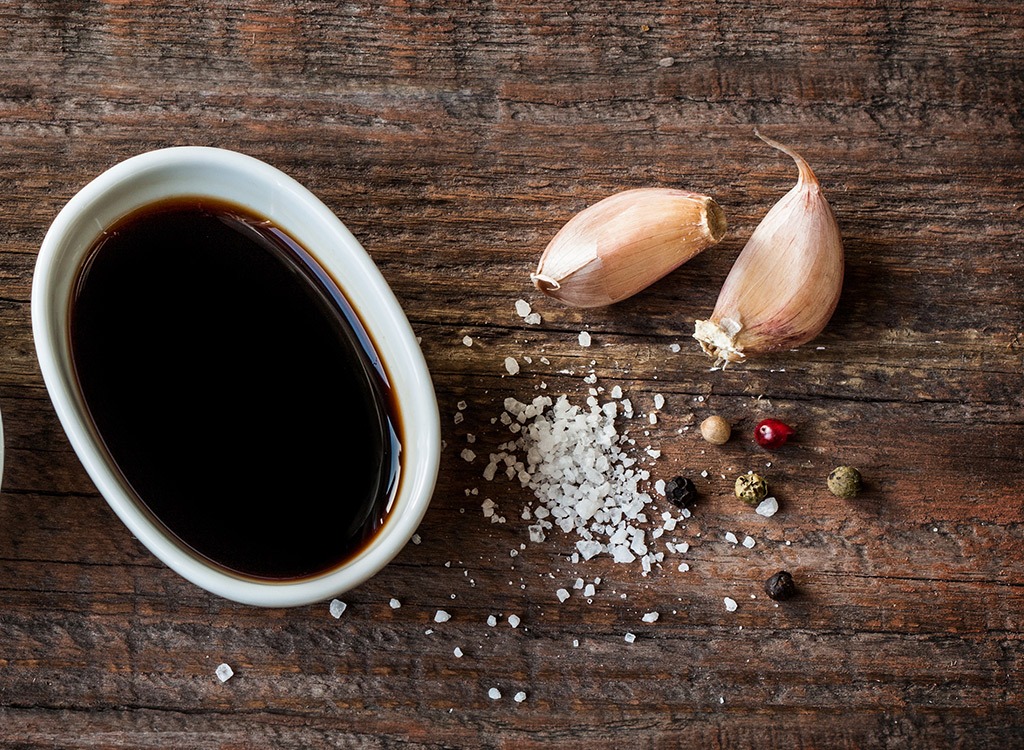
Salads are a great way to fill your diet up with fresh produce–but that pour of balsamic may do a number on your teeth. Not only is balsamic dark in color, but it’s rather sticky and will latch onto teeth, which can lead to staining if it’s not brushed away soon after eating.
Beets
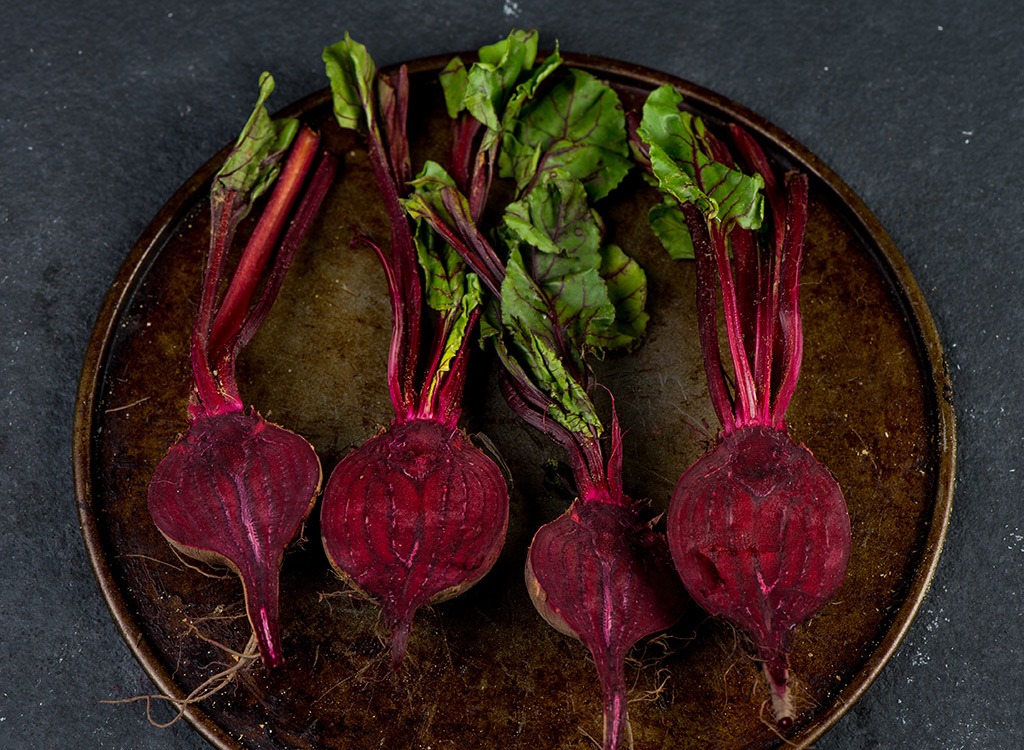
Whether you enjoy them in your morning veggie juice or consume them whole, beets can be incredibly staining to the teeth. The most important action you can take against them is to brush your teeth shortly after eating. Alternatively, you can also try pairing them with foods that are less damaging to your mouth—like cheese! “There are some studies that show things like cheese may help to reduce acids in the mouth,” says Harms.
Ice Pops
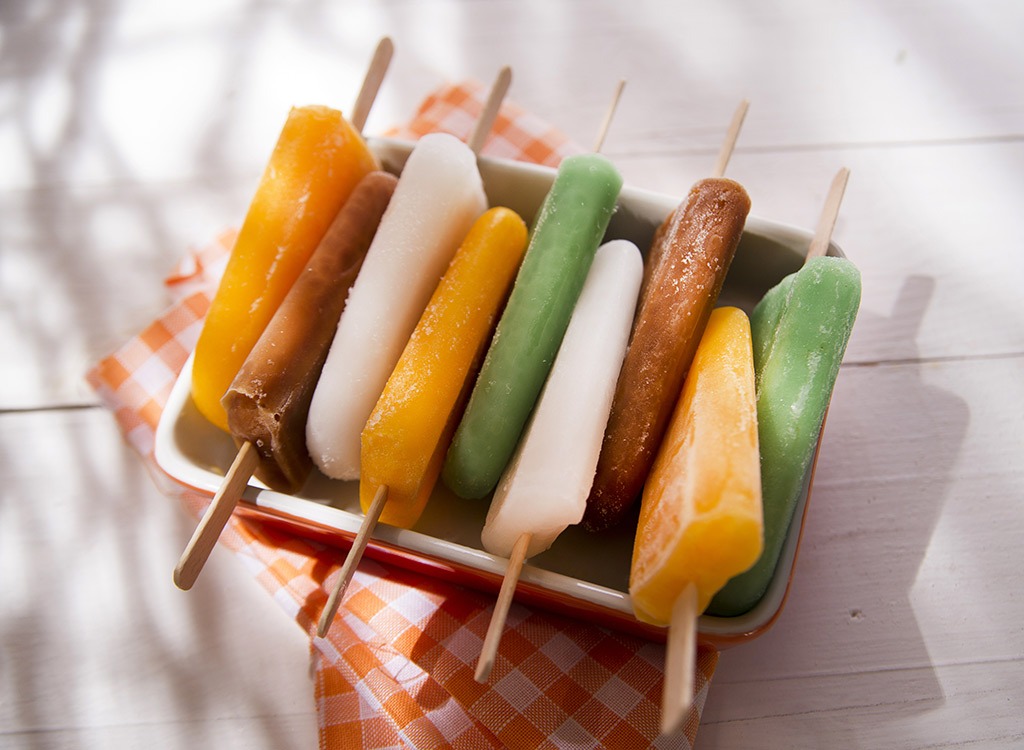
Popsicles may be lower in calories than other dessert options—but due to their sugar content and fruit juice base, they may steal the radiance from your smile. If you need something to curb your sweet tooth and occupy your mouth, chewing on some sugarless bubble gum can help. Gum is especially handy when it comes to mindless eating that often occurs when you’re bored or glued to the television. “Chewing sugarless gum can help increase your saliva production, which helps to neutralize and counteract those acid attacks,” says Harms. And if you’re still wanting to satisfy that sweet tooth, take a look at these 5 Delicious Dessert Recipes from Maria Menounos.
Gatorade
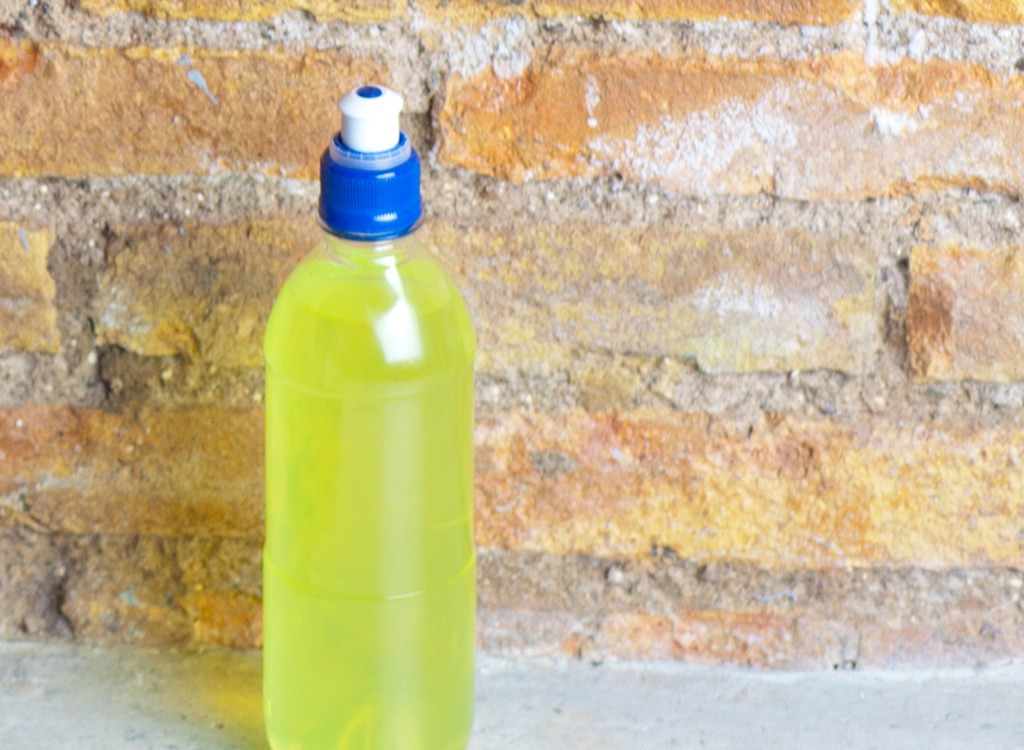
Some research suggests sports drinks are even more harmful to your smile than sodas. Researchers from New York University found that excessive consumption of these types of drinks can weaken and damage the tissue in your teeth because of a combination of acidic components, sugars, and other additives. Water is king when it comes to hydration and a healthy, shiny mouth.
Grapes
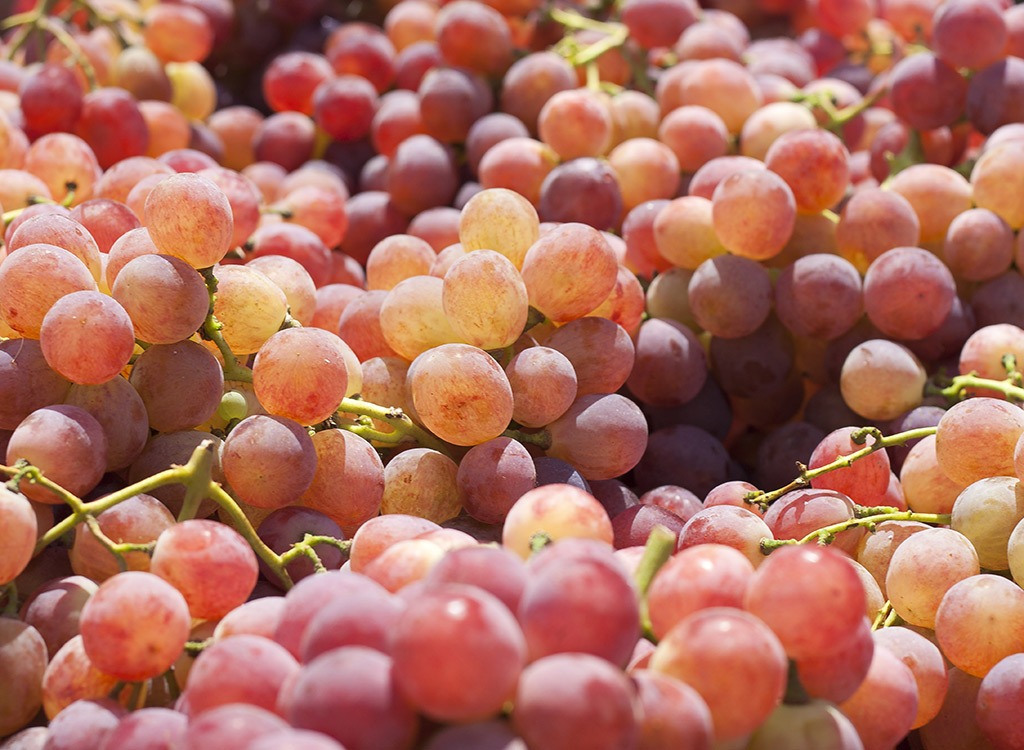
If wine will turn your smile dark, then you better believe its main ingredient will do the same. Grapes are deeply pigmented fruits and may cause staining when eaten often. If you keep a good toothpaste on hand, however, you’ll be able to fight against those stains more effectively.
“It’s the mechanical brushing away of the plaque that’s important for healthy teeth. If you’re brushing away the sticky plaque that’s on your teeth with a fluoride toothpaste, that’s the best thing you can do,” says Harms.
Lemon
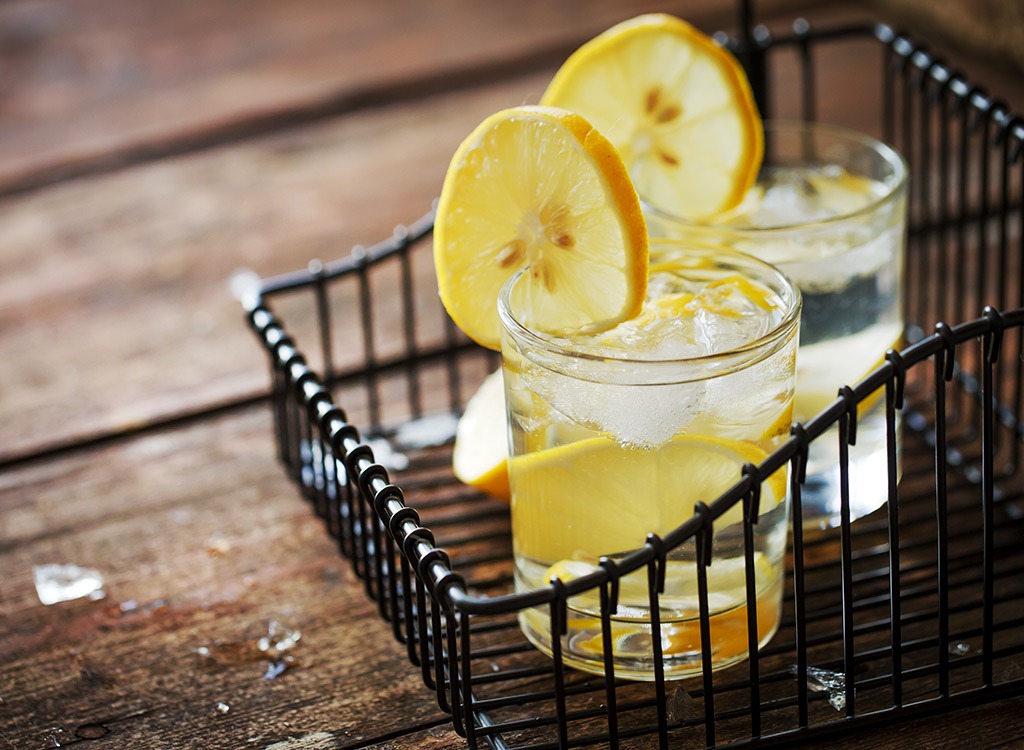
Hot water with lemon in the morning has become a staple of healthy celebs and health-conscious folks alike. But the truth is that citrus fruits like lemon or lime are highly acidic and can erode the enamel on your teeth—in turn, revealing yellow tissue below the surface. “You really want to minimize your teeth’s exposure to acidic foods. The acid will eat away at your teeth,” says Harms. On the plus side, lemon is a diuretic and can help you beat bloat; check out these 24 Ways to Shrink Your Belly in 24 Hours if you’re more worried about your puffy tummy than your pearly white teeth!
